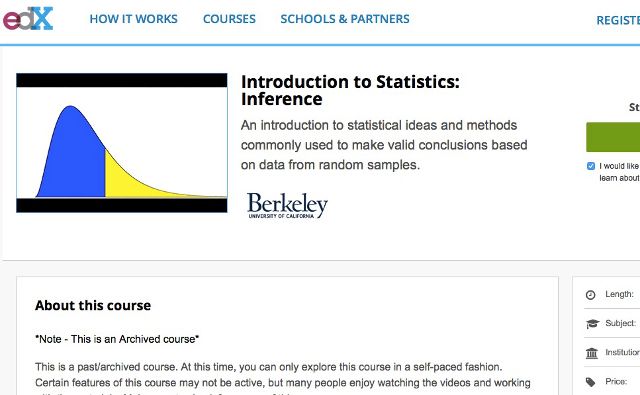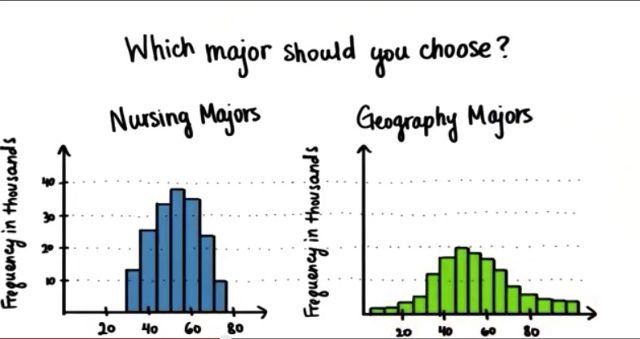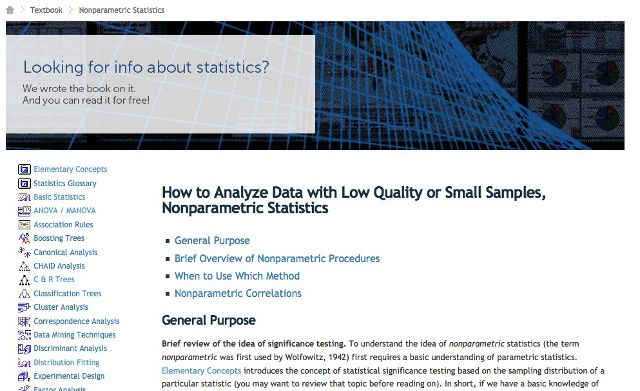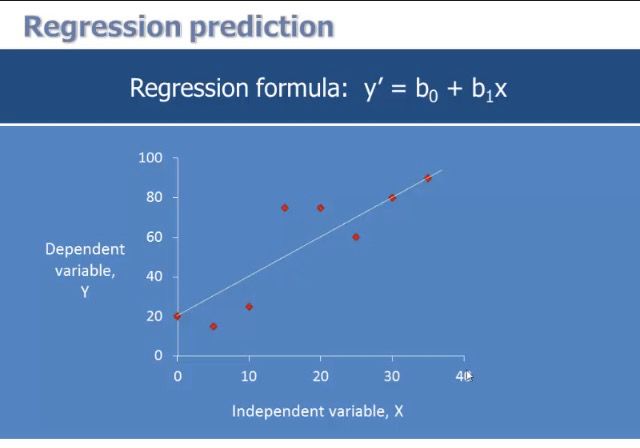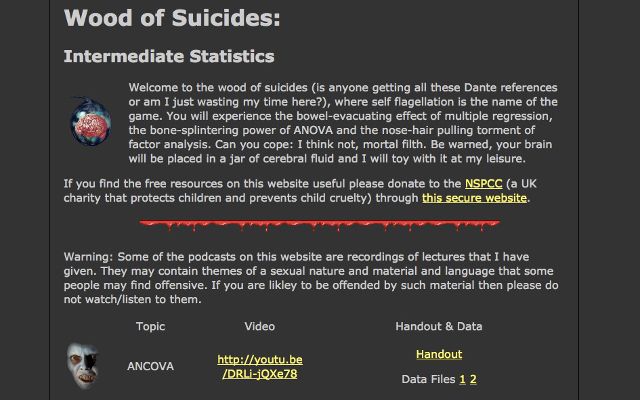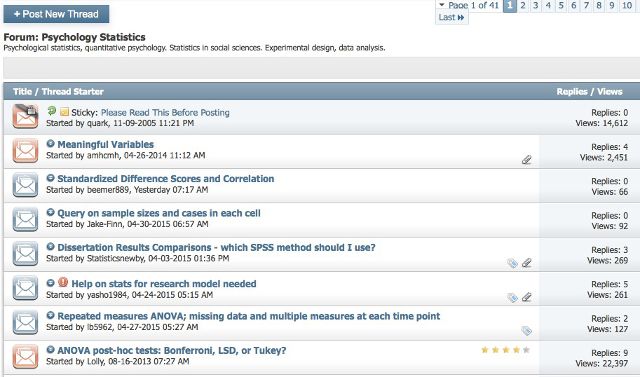There are three kinds of lies: lies, damned lies, and statistics.
This quote, often attributed to Benjamin Disraeli, sums up what many people feel about statistics — and after seeing how they're used during an election cycle, it's easy to understand why. But having an understanding of statistics can be helpful for many reasons.
Many students need to understand statistics for their degrees. Interpreting survey results in the news is a lot easier when you understand what they say. And reading popular news accounts of scientific studies becomes much less deceiving.
Whatever your reason for wanting to learn statistics, here are six different resources that you can use to go from the basic to an intermediate level.
Introduction to Statistics (University of California-Berkeley)
This free online university-level course, available at edX, is the equivalent of Statistics 2, a 15-week course taken by students at Berkeley. The online course is split into three parts.
The first section, linked above, deals with descriptive statistics; the second part is focused on probability, and the third section covers inference.
The course starts with the basics of statistics, like interpreting numerical and graphical representations of data. One of the nice things about this course is that it's focused on application; you won't spend time memorizing equations or getting into the minute differences between distributions.
By the end of the course, you'll understand population sampling, statistical significance, margin of error, and other fundamental statistics concepts.
Elementary Statistics (San Jose State University)
This is another university-level online course hosted by Udacity. Elementary Statistics will take you from the basics, like distributions and central tendency, to more advanced topics, like t-tests and ANOVA. Correlation, regression, and chi-square tests will be added to the syllabus soon.
Minimal math background is required for this course, which makes it a good option for students who haven't studied math in a while (or just don't like it). You'll need to know some basic things about fractions, algebra, percentages, and exponents, but there's no difficult math that's required.
One of the nice things about this course is that it's specifically focused on providing real-world examples of using statistics, and even uses actual studies and figures to provide examples.
Statistics: Methods and Applications [Broken URL Removed] (StatSoft)
This online electronic textbook is provided by StatSoft, the company that makes STATISTICA software, which is now a part of Dell. It's a full-featured free textbook that's focused on computational applications of statistics, like data mining and neural networks. It contains a wealth of statistics information that spans from the basics to quite advanced applications.
It's a great first place to go when you want to work from elementary concepts all the way through machine learning and text mining, or just use it as a reference. If you have only a vague idea of how statistics work, it might be a good idea to start with the Basic Statistics section, which provides information on descriptive statistics, correlations, t-tests, cross tabulations, and other basics.
Also included in the book are links to some useful resources published by StatSoft, most of which have to do with using STATISTICA for real-world applications. You can also view backissues of the STATISTICA newsletter, which contains great articles like "Why predictions go wrong—and how to prevent it" and "How to transform variables using the Box-Cox method."
StatTrek for AP Statistics
Although StatTrek is primarily focused on helping students prepare for the AP Statistics exam, it offers a wide range of lessons that will be useful to any newcomer to statistics. After clicking on AP Statistics Tutorial on the left sidebar, you're presented with a variety of topics, ordered from most basic to more advanced.
Each section has an explanation of that particular concept, and each section also contains a video that will walk you through the test or concept under discussion. The videos are a bit dated, but the information still holds.
One of the most useful things that you can read about on StatTrek is planning a study — with tips on how to design a survey, collect data, and analyze the results, you'll have a good idea of how to effectively design a survey or another type of experiment in a statistically valid manner.
Statistics Hell
If you're looking for a more irreverent resource for learning stats, Statistics Hell is made for you. Created by Andy Field, author of several fantastic stats books, it contains a lot of stats knowledge from central tendency and correlation in Limbo to principal components and reliability analysis in Malbowges, the eighth circle of Hell.
With handouts and webcasts from Field's lectures as well as a discussion board where you can get in touch with others suffering through Statistics Hell, you can get all the help you need, no matter your level of expertise.
I should warn you that any recorded lectures from Andy Field may contain references of a sexual or otherwise potentially offensive nature, so if you'd rather stay away from that, I wouldn't recommend Statistics Hell. If you like Field's style of humor, though, and you're looking for a more comprehensive stats resource, I highly recommend his books Discovering Statistics Using R, Discovering Statistics Using SPSS, and Discovering Statistics Using SAS.
Talk Stats Forum
If you need to ask questions about specific stats problems, or you want to get a real-world understanding of the issues that people have with statistics, the Talk Stats forum is a great place to start. It's run by the same people as the Stats Blogs website [Broken URL Removed], which hosts a number of great blogs on stats.
In addition to general statistics forums, there are also sub-forums on specific areas, like psychology statistics, bio statistics, and applied stats; and specific pieces of software, including R, SPSS, and Stata. This is an active forum, so if you have a question, you can feel confident that you'll get a response pretty quickly from Talk Stats (if it hasn't been answered already).
Don't Be Fooled
Statistics has a reputation of a subject that's difficult to understand. But learning from the right resource will help you understand survey results, election reports, and your stats class assignments in no time. The six resources above will help you go from complete newbie to someone with a decent understanding of how statistics work.
Which resources have you used to help bolster your stats knowledge? Share your favorite resources below so we can all learn from them!


